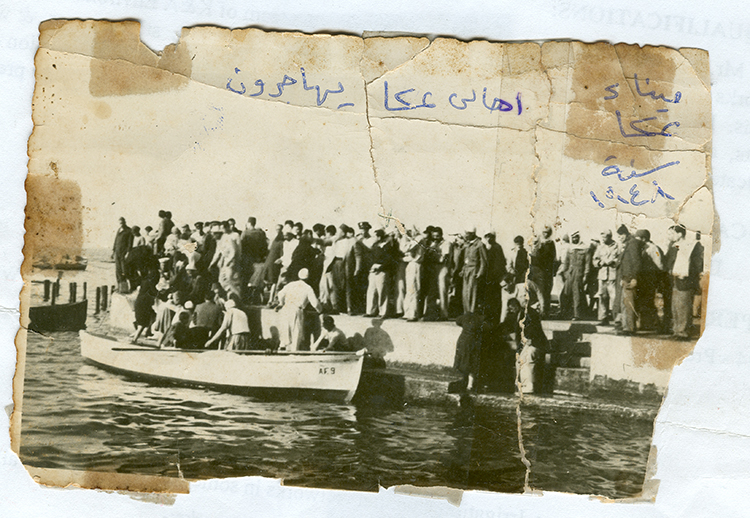Still Life

Said Ismael Otruk is an 83 year-old Palestinian man born in the town of Acre in the 1930s. Now part of Israel, Acre is approximately 4,000 years old—“one of the oldest continuously inhabited cities in the world” (http://whc.unesco.org/en/list/1042). Said and his family were forced to move from Acre during the Palestinian resettlement of 1948. They moved to Sidon, Lebanon, when he was an adolescent. Now, sharing life memories with videographer Diana Allan and a translator, he thumbs through a handful of worn black and white photographs of scenes from his boyhood years in Acre. He stops at a picture of a young man lying in a small fishing boat. The youth is wearing a turtleneck sweater and sports jacket; he appears relaxed and confident. Speaking in Arabic (with English subtitles), Said reads the words he wrote on the photograph many years ago: “ ‘Acre and Said in the Golden Years’. In Acre, the sun would rise and set on us and we would be at sea. This was the Golden Age. That’s what I put on the photo to remember Acre.”
Brief and subdued, Still Life is remarkably intimate in its telling and content. The silent spaces in the film say as much as Said’s words in making it clear that we are in a realm of memory that is more than special for him—it is almost sacred. His trembling fingers move steadily through the stack of photos he holds in his hands. Sometimes he stops, stares intently at an image for several seconds, strokes it with his thumb, then moves on to another, wordless. The photos evoke memories and visions of Acre. He shares a photo of a several boys lounging in a group—the “football team”: “When we were young we would play and we would clean the area of small stones. We were a group of 10–15 children. We taught one another. Ah, that was a story among stories! Oh-h-h.”
